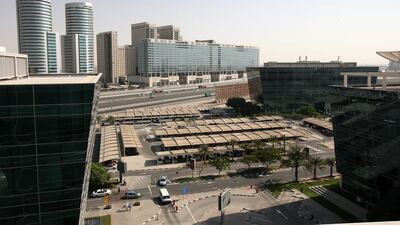The UAE Ministry of Finance on Friday announced new corporate tax decisions for companies in free zones as it seeks to standardise regulations with international frameworks.
The new decisions aim to clarify the scope of both qualifying and excluded activities in the corporate tax regime, giving more certainty to free zone businesses.
They include Cabinet Decision No. 100 of 2023 that addresses the identification of qualifying income, and Ministerial Decision No. 265 of 2023, which applies to qualifying activities and excluded activities.
“These new decisions reflect the continued significant role of free zones in the UAE’s economic diversification strategies and commitment to aligning with international taxation standards,” Younis Haji Al Khoori, undersecretary at the Ministry of Finance, said.

“The certainty of a competitive corporate tax regime and offering a special regime for free zones cements the UAE’s position as a leading global hub for business and investment and drives its sustainable development agenda.”
The UAE introduced the federal corporate tax with a standard statutory rate of 9 per cent starting from the financial year beginning on or after June 1.
Under the regulations, companies operating in free zones can pay zero per cent tax on income from certain qualifying activities and transactions.
Qualifying activities include fund, wealth and investment management services, the manufacture and processing of goods or materials, reinsurance services, the holding of shares and other securities and the ownership, management and operation of ships.
Other qualifying activities include services provided by headquarters to related parties, Treasury and financing services provided to related parties, the financing and leasing of aircraft (including engines and rotable components), logistics services, as well as distributions in or from a designated zone that meet the relevant conditions and any ancillary activities related to these.
They can also benefit from a tax exemption on income earned from transactions with mainland UAE businesses or those in a foreign jurisdiction.
According to the latest updated cabinet decision, the definition of qualifying income has been expanded to cover revenue generated from owning or utilising qualifying intellectual property.
This calculation follows the methodology outlined in the Organisation for Economic Co-operation and Development's modified nexus approach, the ministry said.
Meanwhile, the ministerial decision has now included qualifying commodities trading as an eligible activity for corporate tax.
The move allows for the zero per cent corporate tax rate to apply to income earned from the physical trading of metals, minerals, energy, and agricultural commodities that are traded on a recognised stock exchange.
This provision also covers income from derivative trading used for hedging against the risks associated with these trading activities, the ministry said.
The ministerial decision also explains the precise boundaries of qualifying activities and excluded activities, it added.


